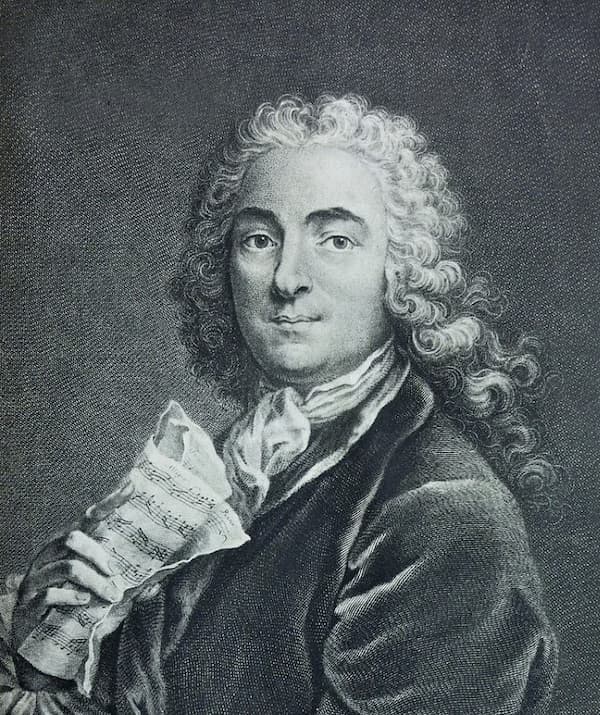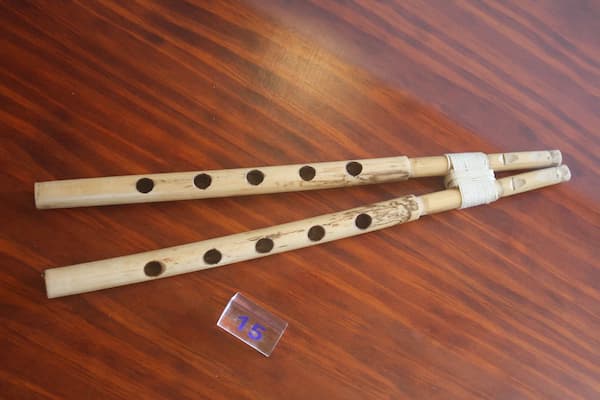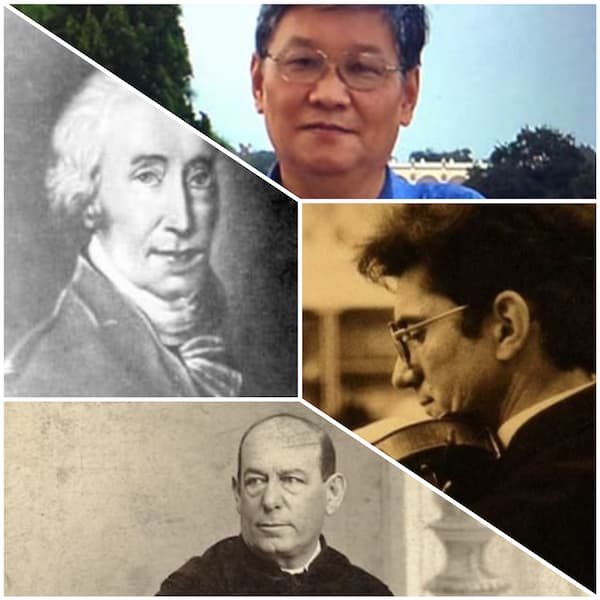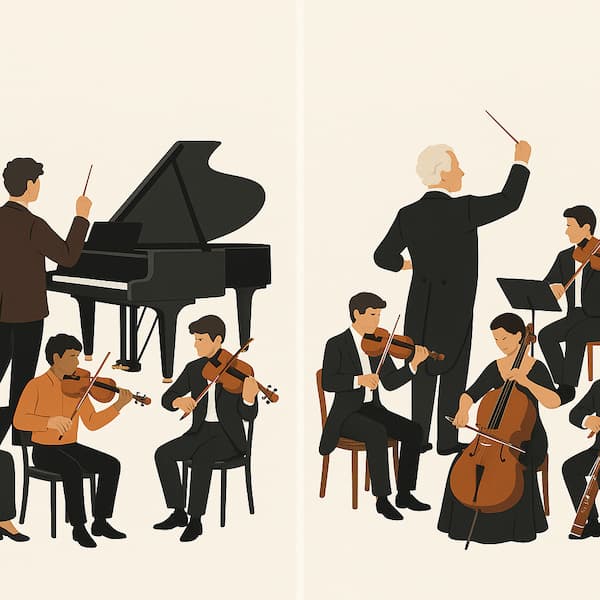Mauricio Kagel (1931–2008) wrote Exotica on commission for the 20th Olympic Games, held in 1972 in Munich. In the work, he explored the idea of confronting musicians with instruments they’d never played before and challenging them to come up with original music. The instruments chosen were ‘non-European’ instruments that were brought together from the Instrument Collection of the Munich Stadtmuseum, from the Otoia Collection and the Olympic Committee in Munich, Germany, from the “Institut Fondamental D’Afrique Noire” of Dakar University, by Dr. Ramon Pelinski and Rolf Miehler, by the composer, and by the performers themselves.
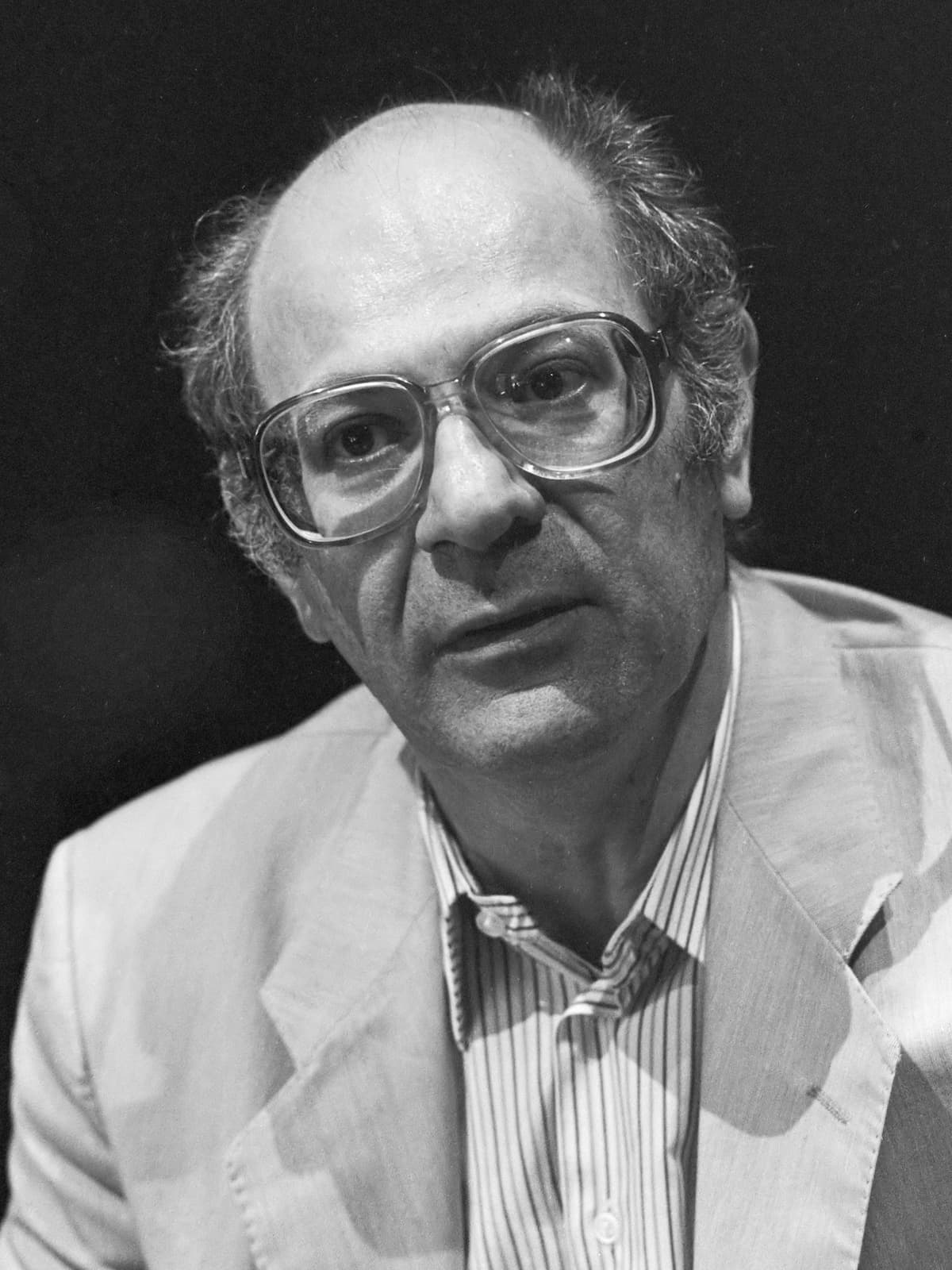
Mauricio Kagel
The six performers, led by a conductor, were assigned one instrumental part and one vocal part. The division of the instruments was assigned in the rehearsals. According to the composer, priority should be given to the vocal part if it came into conflict with the instrumental part.
Kagel’s score couldn’t be written in standard notation since the performers had only a limited time to learn how to play these foreign instruments. Kagel wrote out duration values and degrees of loudness; the performers were supposed to provide an ongoing rhythmic beat using pitches in any register. For the vocal writing, Kagel wrote melodies, but without clef indication.
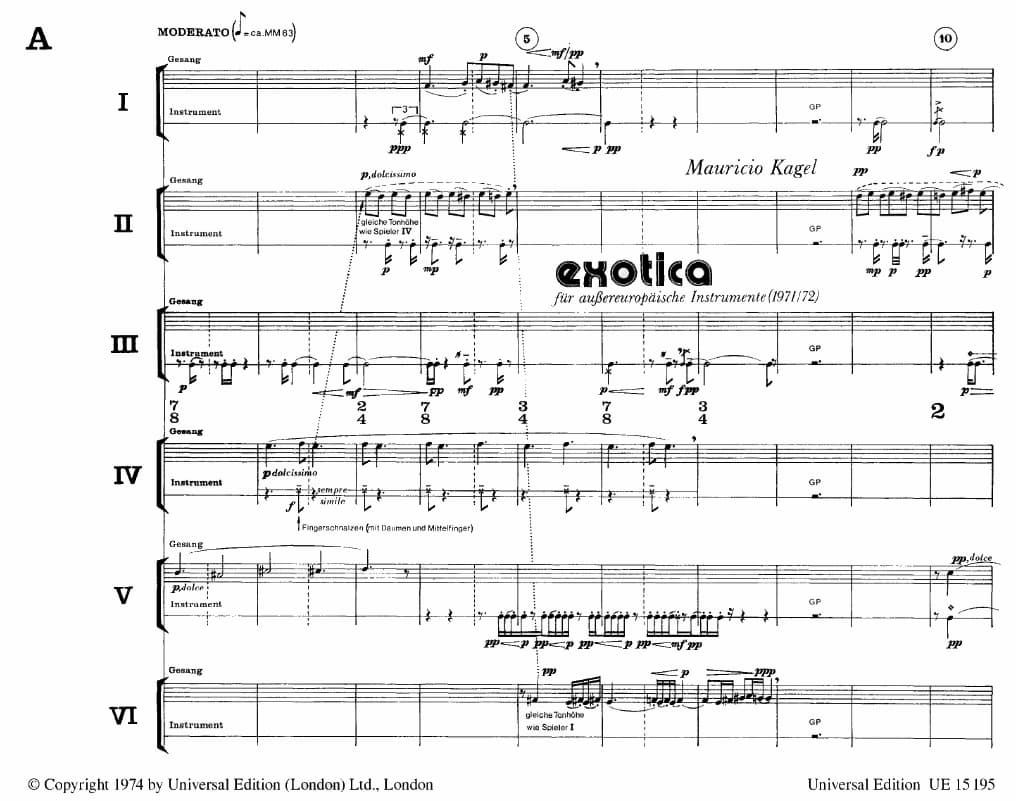
First page of the score
In the score itself, the vocal line is the top line, with the time signature for all players written between parts 3 and 4. There are very specific indications for dynamics but none for the text to be sung.
The performers for the premiere were guitarist Wilhem Bruck, percussionist Cristoph Caskel, trombonist Vinko Globokar, cellist Siegfried Palm, saxophonist and clarinetist Michel Portal, and guitarist Theodor Ross, all of whom were well-known in the avant-garde music scene of the 1970s. The conductor was the composer, Mauricio Kagel.
The performance directions require a minimum of 60 non-European plucked, wind, string, and percussion instruments. One report says that over 200 instruments were brought together for the performers. In addition, one or two stereo tape recordings with two to four loudspeakers were needed.
Kagel’s goal was ‘to question the dominance of Western music or culture or go back to the primeval origins of music-making, when singing was still at one with making sound out of simple, everyday objects. He also sought to demystify the concept of ‘exotic’, feeling that it was a relativistic term and didn’t have a firm definition.
Placing this work in the context of the Summer Olympics where the whole world comes together to compete makes Kagel’s composition even more interesting. In Munich 1972, 121 nations were in competition.

Waldi, mascot for the 1972 Summer Olympics
Mauricio Kagel: Exotica (Ensemble Modern; Mauricio Kagel, cond.)
In the recording by the Ensemble Modern, they worked with Kagel starting in 2008, but the composer died a few days before the work’s scheduled performance in Frankfurt.
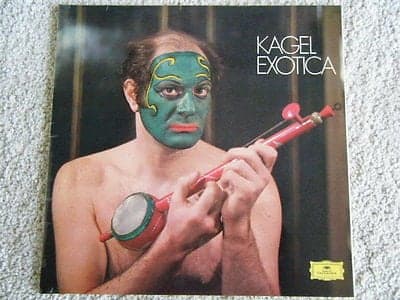
Original Exotica recording, with Kagel on the cover
A recording with the original performers, gives an indication of how much the west’s idea of ‘non-European’ music has expanded. The Ensemble Modern performance has a larger sound world than did its predecessors of 50 years earlier – instruments are played differently, different instrumental choices were made, and different vocalizations.
For work such as this, where so many parameters are left open, every performance will be different. The original performers were all German with one Frenchman, conducted by an Argentinian who lived in Germany. Each group of instrumentalists that comes to the work must bring with them their own idea of ‘exotic’ and it would be interesting to hear this performed by a non-European group of players.
For more of the best in classical music, sign up for our E-Newsletter

